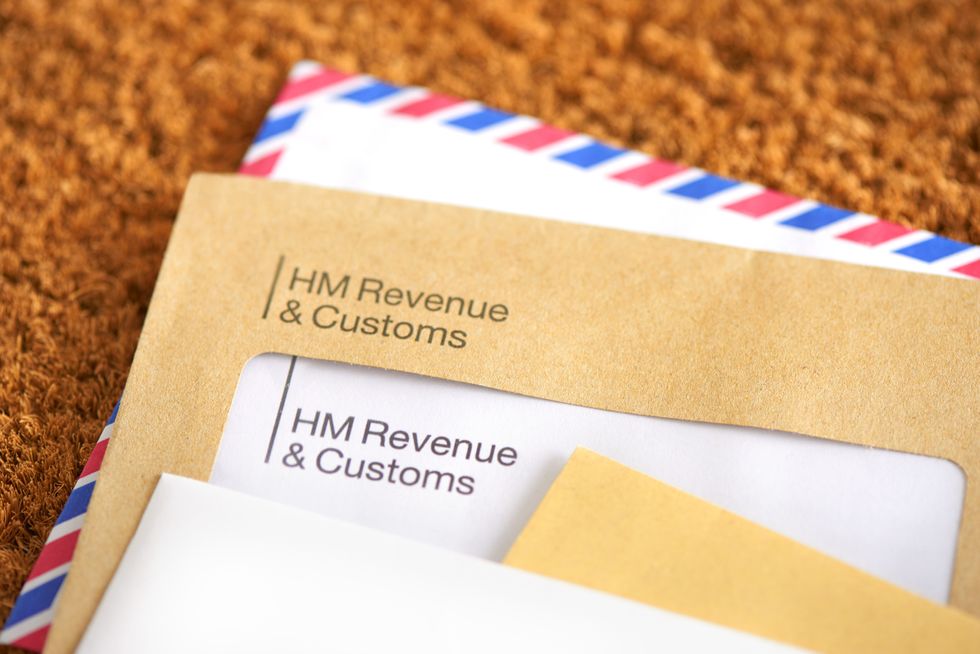Tax refunds for work expenses - HMRC
GBNEWS
Frozen tax allowances mean thousands may owe tax on savings and won't know about it
Don't Miss
Most Read
Trending on GB News
Pensioners are being urged to check their post carefully, as ignoring letters from HMRC could lead to unexpected fines.
The tax authority has been contacting individuals whose savings interest may be subject to tax — but it's up to each person to take action and ensure they declare what they owe.
Savings interest rates on bank and building society accounts have risen sharply over the past three years — but the personal savings allowance has been frozen since it was introduced in 2016.
This allowance lets basic-rate taxpayers earn up to £1,000 in interest tax-free, while higher-rate taxpayers are limited to £500.
The effect of this — known as "fiscal drag" — means many retirees may now exceed their allowance without realising they owe tax.
The Treasury estimates that an extra 893,000 people will be caught out by 2028–29. HMRC has started sending letters to those who may be liable.
A spokesperson said: "We want to help customers get their tax right, which is why we’ve been writing to people to inform them their savings will incur tax.

HMRC has started sending letters to those who may be liable
GETTY"It’s an individual’s responsibility to ensure they pay the correct tax, and they should let us know as soon as possible if they believe they haven’t."
Despite HMRC's efforts, the tax office recently reported it is unable to match about one in five bank accounts to a taxpayer record - meaning thousands may owe tax and never be informed.
The Association of Taxation Technicians is urging anyone who may owe tax on savings interest and hasn’t received a letter from HMRC by the end of March to get in touch with the tax office as soon as possible.
Colin Low, managing director at Suffolk-based firm Kingsfleet, said this risk is of particular concern to pensioners.
He warned: "This is happening at the same time that accountancy practices do not have the resources to take on clients with lower levels of tax liability as it is uneconomic to do so.

The Treasury estimates that an extra 893,000 people will be caught out by 2028–29
GETTY"Whilst most income is paid net of tax, from pensions and employment say, savings interest has been paid gross, namely without tax deducted, for a number of years."
Mark Scott, director and IFA at Positive Advisers, said this issue is compounded by the fact that more pensioners now have to pay tax due to an increase of the state pension.
Scott said: "At annual reviews, I'm having to explain why the taxman is writing to them to claim money back.
"I've got one client in particular who finds the situation very stressful and is scared to take money out of her personal pension and spend because she's worried about how the taxman is after her."
Experts warn that failing to report tax on savings interest could result in several penalties building up.
These include failure to notify penalties, late filing penalties, late payment penalties and late payment interest.
HMRC's current late payment interest rate stands at 8.5 per cent.

Individuals can arrange to pay tax directly to HMRC
GETTYHelen Thornley, technical officer at the Association of Taxation Technicians, noted: "Interest rates were sustained throughout 2023-2024, so a lot more people are going to have been affected by this issue."
Graham Wells noted that "a lack of education around tax and savings means thousands will be due tax on their savings interest this year without realising it."
Individuals can arrange to pay tax directly to HMRC or, if employed or receiving a pension, have their tax code changed to pay automatically.
David Denton of Quilter Cheviot advises that while registering for self-assessment is an option, calling HMRC directly may be simpler for those only needing to report savings interest.
Though phone lines can be "clogged", this approach could save pensioners from the administrative burden of self-assessment.







